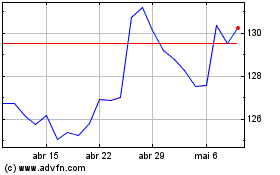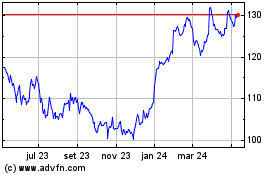Age-based recommendations for adult
pneumococcal vaccination lowered from 65 to 50 years of age
and older
National-level CDC surveillance data shows
CAPVAXIVE covers the serotypes responsible for approximately 84% of
invasive pneumococcal disease cases, compared to approximately 52%
covered by PCV20
Merck (NYSE: MRK), known as MSD outside of the United States and
Canada, announced today that the U.S. Centers for Disease Control
and Prevention’s (CDC’s) Advisory Committee on Immunization
Practices (ACIP) voted to update the adult age-based pneumococcal
vaccination guidelines and recommends CAPVAXIVE™ (Pneumococcal
21-valent Conjugate Vaccine) for pneumococcal vaccination in adults
50 years of age and older.
The updated ACIP guidelines recommend a single dose of CAPVAXIVE
for:
- Adults 50 years of age and older who have not previously
received a pneumococcal conjugate vaccine or whose previous
vaccination history is unknown;
- Adults 19-49 years of age with certain underlying medical
conditions or other risk factors who have not previously received a
pneumococcal conjugate vaccine or whose previous vaccination
history is unknown;
- Adults 19 years of age and older who have started their
pneumococcal vaccine series with PCV13 (pneumococcal 13-valent
conjugate vaccine) but have not received all recommended PPSV23
(pneumococcal 23-valent polysaccharide vaccine) doses.
Shared clinical decision-making is also recommended regarding
use of a supplemental dose of CAPVAXIVE for adults 65 years of age
and older who have completed their vaccine series with both PCV13
and PPSV23.
CAPVAXIVE is indicated for:
- Active immunization for the prevention of invasive disease and
pneumonia caused by Streptococcus pneumoniae serotypes 3, 6A, 7F,
8, 9N, 10A, 11A, 12F, 15A, 15B, 15C, 16F, 17F, 19A, 20A, 22F, 23A,
23B, 24F, 31, 33F and 35B in adults individuals 18 years of age and
older;
- Active immunization for the prevention of pneumonia caused by
S. pneumoniae serotypes 3, 6A, 7F, 8, 9N, 10A, 11A, 12F, 15A, 15C,
16F, 17F, 19A, 20A, 22F, 23A, 23B, 24F, 31, 33F and 35B in
individuals 18 years of age and older.
CAPVAXIVE should not be administered to individuals with a
history of a severe allergic reaction (e.g., anaphylaxis) to any
component of CAPVAXIVE or to diphtheria toxoid; see additional
Select Safety Information below.
The indication for the prevention of pneumonia caused by S.
pneumoniae serotypes 3, 6A, 7F, 8, 9N, 10A, 11A, 12F, 15A, 15C,
16F, 17F, 19A, 20A, 22F, 23A, 23B, 24F, 31, 33F and 35B is approved
under accelerated approval based on immune responses as measured by
opsonophagocytic activity (OPA). Continued approval for this
indication may be contingent upon verification and description of
clinical benefit in a confirmatory trial.
“The CDC’s decision to lower the age-based vaccination
recommendations to begin at age 50 has the potential to be a
practice-changing milestone,” said Dr. Eliav Barr, senior vice
president, head of global clinical development and chief medical
officer, Merck Research Laboratories. “This recommendation is a
significant step forward in efforts to enhance equitable access and
may improve vaccination rates. We’re pleased about this progress
and thank the CDC for their commitment to addressing invasive
pneumococcal disease and pneumococcal pneumonia in adults.”
Based on national-level CDC data from 2018-2022, the serotypes
covered by CAPVAXIVE are responsible for more cases of invasive
pneumococcal disease (IPD) in adults compared to PCV20
(pneumococcal 20-valent conjugate vaccine). In adults 50 years of
age and older, CAPVAXIVE covers the serotypes responsible for
approximately 84% of IPD cases, compared to approximately 52%
covered by PCV20. These values are based on CDC epidemiologic data
and do not reflect the efficacy of the respective vaccines. There
are currently no studies comparing the efficacy of CAPVAXIVE and
PCV20. In certain at-risk adult populations in Alaska, Colorado,
New Mexico, Oregon and the Navajo Nation, a higher prevalence of
IPD caused by serotype 4, which is not included in CAPVAXIVE, has
been reported. IPD surveillance from other geographic areas in the
U.S. has not detected significant percentages of serotype 4.
These provisional recommendations will be published on the CDC
website following the meeting and will be official once reviewed
and finalized by the director of the CDC and the Department of
Health and Human Services.
Select Safety Information for CAPVAXIVE
Do not administer CAPVAXIVE to individuals with a history of a
severe allergic reaction (eg, anaphylaxis) to any component of
CAPVAXIVE or to diphtheria toxoid.
Individuals with altered immunocompetence, including those
receiving immunosuppressive therapy, may have a reduced immune
response to CAPVAXIVE.
The most commonly reported (>10%) solicited adverse reactions
in individuals 18 through 49 years of age who received CAPVAXIVE
were: injection-site pain (73.1%), fatigue (36.0%), headache
(27.5%), myalgia (16.4%), injection-site erythema (13.8%), and
injection-site swelling (13.3%).
The most commonly reported (>10%) solicited adverse reactions
in individuals 50 years of age and older who received CAPVAXIVE
were: injection-site pain (41.2%), fatigue (19.7%), and headache
(11.0%).
Vaccination with CAPVAXIVE may not protect all vaccine
recipients.
About CAPVAXIVE
CAPVAXIVE is Merck’s approved 21-valent pneumococcal conjugate
vaccine indicated for active immunization for the prevention of
invasive disease and pneumonia in adults 18 years of age and older.
CAPVAXIVE is specifically designed to help address Streptococcus
pneumoniae serotypes predominantly responsible for adult invasive
pneumococcal disease (IPD), including eight unique serotypes, 15A,
15C, 16F, 23A, 23B, 24F, 31 and 35B compared to other pneumococcal
vaccines. CAPVAXIVE is administered as a single dose.
About Pneumococcal Disease
Pneumococcal disease is an infection caused by a bacteria called
Streptococcus pneumoniae. There are about 100 different types
(referred to as serotypes) of pneumococcal bacteria, which can
affect adults differently than children. Pneumococcal disease can
be invasive or non-invasive. Non-invasive pneumococcal illnesses
include pneumonia (when pneumococcal disease is confined to the
lungs), whereas invasive pneumococcal illnesses include
pneumococcal bacteremia (infection in the bloodstream), bacteremic
pneumococcal pneumonia (pneumonia with bacteremia) and pneumococcal
meningitis (infection of the coverings of the brain and spinal
cord). Pneumococcal pneumonia is a type of bacterial pneumonia,
which is the most common clinical presentation of pneumococcal
disease in adults. It’s estimated that over 150,000 adults are
hospitalized from pneumococcal pneumonia each year in the U.S.
About Merck
At Merck, known as MSD outside of the United States and Canada,
we are unified around our purpose: We use the power of leading-edge
science to save and improve lives around the world. For more than
130 years, we have brought hope to humanity through the development
of important medicines and vaccines. We aspire to be the premier
research-intensive biopharmaceutical company in the world – and
today, we are at the forefront of research to deliver innovative
health solutions that advance the prevention and treatment of
diseases in people and animals. We foster a diverse and inclusive
global workforce and operate responsibly every day to enable a
safe, sustainable and healthy future for all people and
communities. For more information, visit www.merck.com and connect
with us on X (formerly Twitter), Facebook, Instagram, YouTube and
LinkedIn.
Forward-Looking Statement of Merck & Co., Inc., Rahway,
N.J., USA
This news release of Merck & Co., Inc., Rahway, N.J., USA
(the “company”) includes “forward-looking statements” within the
meaning of the safe harbor provisions of the U.S. Private
Securities Litigation Reform Act of 1995. These statements are
based upon the current beliefs and expectations of the company’s
management and are subject to significant risks and uncertainties.
There can be no guarantees with respect to pipeline candidates that
the candidates will receive the necessary regulatory approvals or
that they will prove to be commercially successful. If underlying
assumptions prove inaccurate or risks or uncertainties materialize,
actual results may differ materially from those set forth in the
forward-looking statements.
Risks and uncertainties include but are not limited to, general
industry conditions and competition; general economic factors,
including interest rate and currency exchange rate fluctuations;
the impact of pharmaceutical industry regulation and health care
legislation in the United States and internationally; global trends
toward health care cost containment; technological advances, new
products and patents attained by competitors; challenges inherent
in new product development, including obtaining regulatory
approval; the company’s ability to accurately predict future market
conditions; manufacturing difficulties or delays; financial
instability of international economies and sovereign risk;
dependence on the effectiveness of the company’s patents and other
protections for innovative products; and the exposure to
litigation, including patent litigation, and/or regulatory
actions.
The company undertakes no obligation to publicly update any
forward-looking statement, whether as a result of new information,
future events or otherwise. Additional factors that could cause
results to differ materially from those described in the
forward-looking statements can be found in the company’s Annual
Report on Form 10-K for the year ended December 31, 2023 and the
company’s other filings with the Securities and Exchange Commission
(SEC) available at the SEC’s Internet site (www.sec.gov).
Please see Prescribing Information for CAPVAXIVE
(Pneumococcal 21-valent Conjugate Vaccine) at
https://www.merck.com/product/usa/pi_circulars/c/capvaxive/capvaxive_pi.pdf
and Patient Information/Medication Guide for CAPVAXIVE at
https://www.merck.com/product/usa/pi_circulars/c/capvaxive/capvaxive_ppi.pdf.
View source
version on businesswire.com: https://www.businesswire.com/news/home/20241023125036/en/
Media Contacts: Julie Cunningham (617) 519-6264
julie.cunningham@merck.com
Chrissy Trank (640) 650-0694 chrissy.trank@merck.com
Investor Contacts: Peter Dannenbaum (732) 594-1579
peter.dannenbaum@merck.com
Alexis Constantine (732) 594-1578
alexis.constantine@merck.com
Merck (NYSE:MRK)
Gráfico Histórico do Ativo
De Dez 2024 até Jan 2025

Merck (NYSE:MRK)
Gráfico Histórico do Ativo
De Jan 2024 até Jan 2025
